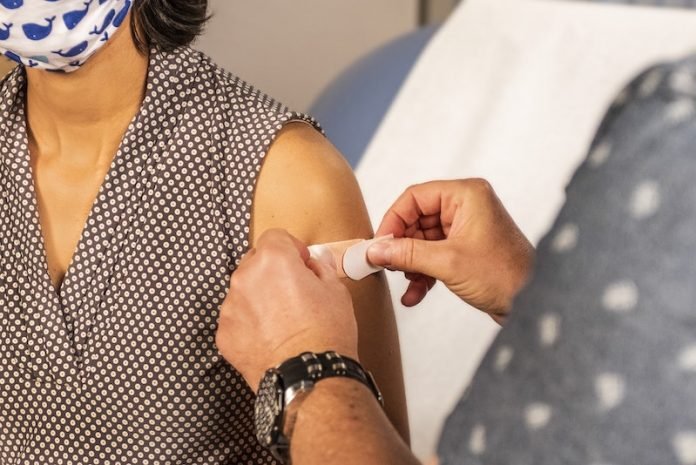
A new study from the University of Melbourne found that the body’s T cells provide long-lasting memory against the virus following vaccination or infection from COVID-19.
The study is published in Nature Immunology.
In the study, the team utilized new technology to track the T cell responses of people who had recovered from COVID-19 for 15 months.
They found there was a sustained level of these cells capable of recognizing the SARS-CoV-2 spike protein.
They found that despite an initial contraction of the immune response immediately following infection, the T cells stabilized at six months and remained level after 15 months of monitoring.
While B cells are responsible for producing the antibodies that recognize SARS-CoV-2, T cells play a crucial role in supporting the development of the B cell response.
Without T cell help, B cells are unable to produce high amounts of antibodies that can bind to the virus and stop infection.
When individuals were re-exposed to the COVID-19 spike protein through vaccination, the part of the virus that enables SARS-CoV-2 to attach and enter cells in humans, the T cells quickly reactivated and increased in number.
The team looked at people who had recovered from mild illness, as well as people who had been vaccinated.
They utilized new technology called tetramers that help identify which T cells recognize the spike protein to undertake the research, resulting in more accurate findings.
The team is now looking at how these T cells react when breakthrough infections happen.
Recent studies have found the new antibody treatment for COVID-19, and that vaccines may not prevent severe COVID-19 in these people, which are relevant to the current study.
Other recent research has developed new vaccines to fight against COVID-19 variants.
In a recent study from McMaster University and published in Cell, researchers developed an inhaled form of COVID vaccine have confirmed it can provide broad, long-lasting protection against the original strain of SARS-CoV-2 and variants of concern.
They found the immune mechanisms and strong benefits of vaccines being delivered directly into the respiratory tract, rather than by traditional injection.
Because inhaled vaccines target the lungs and upper airways where respiratory viruses first enter the body, they are far more effective at inducing a protective immune response.
The team has discovered from many years’ research is that the vaccine delivered into the lung induces all-around protective respiratory mucosal immunity, a property that the injected vaccine is lacking.
This vaccine might also provide pre-emptive protection against a future pandemic.
The team found that besides neutralizing antibodies and T cell immunity, the vaccine delivered into the lungs stimulates a unique form of immunity known as trained innate immunity.
This is able to provide very broad protection against many lung pathogens besides SARS-CoV-2.
In addition to being needle and pain-free, an inhaled vaccine is so efficient at targeting the lungs and upper airways that it can achieve maximum protection with a small fraction of the dose of current vaccines—possibly as little as 1 percent—meaning a single batch of vaccine could go 100 times further.
The team says this pandemic has shown that vaccine supply can be a huge challenge.
Demonstrating that this alternative delivery method can strongly extend vaccine supply could be a game-changer, particularly in a pandemic setting.
If you care about Covid, please read studies about the cause of persistent breathlessness after COVID-19, and COVID-19 booster critical as vaccine-induced antibodies wane in 6 months.
For more information about Covid, please see recent studies about pain and fever drugs that may increase risk of COVID-19 infection, and results showing scientists find new treatment option for COVID-19.
Copyright © 2022 Knowridge Science Report. All rights reserved.



